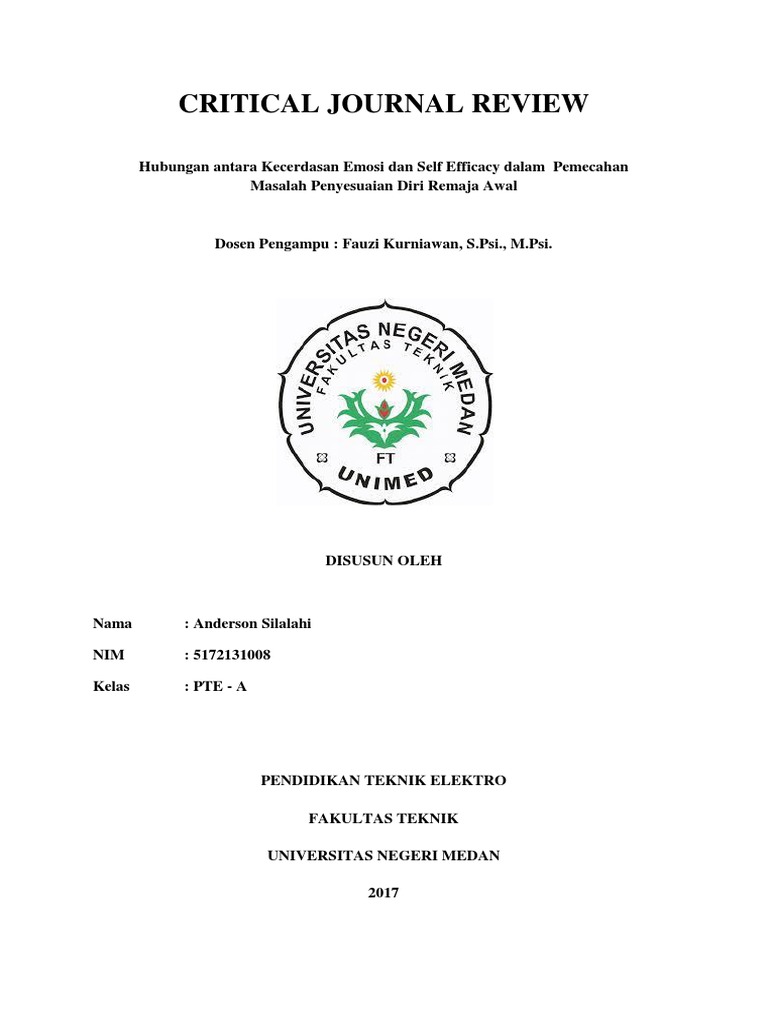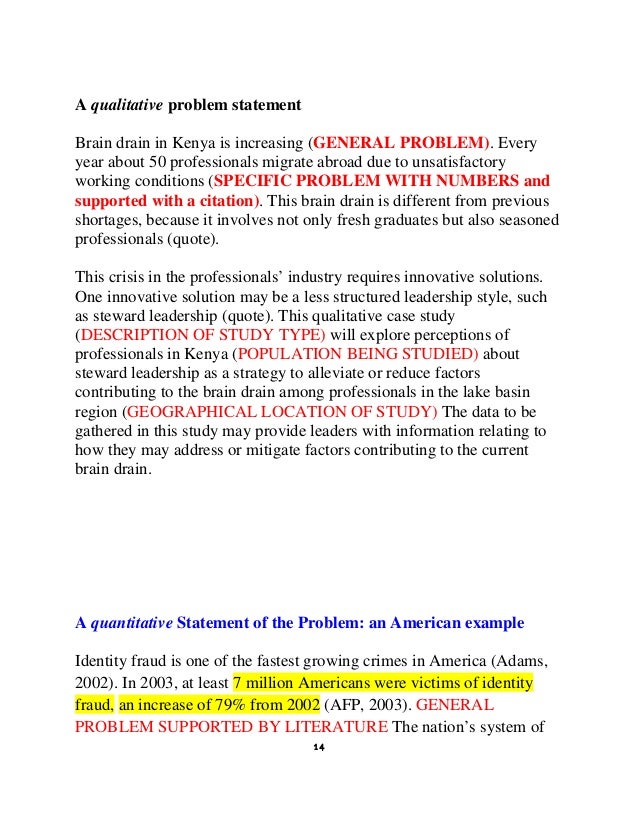
SJR is a measure of scientific influence of journals that accounts for both the number of citations received by a journal and the importance or prestige of the journals where such citations come from It measures the scientific influence of the average article in a journal, it expresses how central to the global scientific discussion an average article of the journal is Summarising and paraphrasing are essential skills for academic writing and in particular, the critical review. To summarise means to reduce a text to its main points and its most important ideas. The length of your summary for a critical review should only be about one quarter to one third of the whole critical review. The best way to summarise Task: Write a critical review of Sherry Turkle’s book Alone Together: Why we expect more from technology and less from each other. Critical review task: Sherry Turkle, a professor of the Social Studies of Technology, has written extensively about the effects of technology on human relationships. Read Chapter 1 (Connectivity and its discontents) from her book Alone Together: Why we expect
Structure of a Critical Review | UNSW Current Students
A critical review of a journal article evaluates the strengths and weaknesses of an article's ideas and content, journal critical review. It provides description, analysis and interpretation that allow readers to assess the article's value. Read over your notes. Choose a statement that expresses the central purpose or thesis of your review. When thinking of a thesis, consider the author's intentions journal critical review whether or not you think those intentions were successfully realized.
Eliminate all notes that do not relate to your thesis, journal critical review. Organize your remaining points into separate groups such as points about structure, style, or argument. Devise a logical sequence for presenting these ideas. Remember that all of your ideas must support your central thesis. Platt, Kevin M, journal critical review.
Ivan the Journal critical review and Peter the Great. NOTE: Use the same bibliographic citation format as you would for any bibliography, works cited or reference list, journal critical review. It will follow journal critical review standard documentation style such as MLA or APA. Be sure to ask your instructor which citation style to use. For frequently used style guides consult Queen's University Library's Citing Sources guide.
Ideally, you should leave your first draft for a day or two before revising. This allows you to gain a more objective perspective on your ideas. Check for the following when revising:. You may make major revisions in the organization or content of your review during the revision process.
Revising can even lead to a radical change in your central thesis. NOTE: Prepared journal critical review University of Toronto Mississauga Library, Hazel McCallion Academic Learning Centre. Writing a Critical Review Allyson Skene, The Writing Centre, U of Toronto at Scarborough.
The Book Review or Article Critique Margaret Procter, Writing Support, University of Toronto. Critical Journal critical review of Journal Articles Herbert Coutts, journal critical review, University of Alberta. Writing a Critical Review The Writing Centre, Queen's University. Queen's University Library Research Guides 3 column Introduction to Research: Humanities and Social Sciences Critical Reviews. Search this Guide Search. Introduction to Research: Humanities and Social Sciences.
Popular Sources Scholarly vs. Non-Scholarly Periodicals Web Resources Writing Resources Critical Reviews Annotated Bibliography Reflective Writing Citing Sources Need Help? Off Campus? Writing Critical Reviews What is a Critical Review of a Journal Article?
Before You Read the Article What does the title lead you to expect about the article? Study any sub-headings to understand how the author organized the content. Read the abstract for a summary of the author's arguments. Study the list of references to determine what research contributed to the author's arguments. Are the references recent? Do they represent important work in the field? If possible, read about the author to learn what authority he or she has to write about the subject. Consult Web of Science to see if other writers have cited the author's work.
Please see 'How to use E-Indexes'. Has the author made an important contribution to the field of study? Reading the Article: Points to Consider Read the article carefully. Record your impressions and note sections suitable for quoting. Who is the intended audience?
What is the author's purpose? To survey and journal critical review research on a topic? To present an argument that builds on past research? To refute another writer's argument? Does the author define important terms? Is the information in the article fact or opinion? Facts can be verified, while opinions arise from interpretations of facts. Does the information seem well-researched or is it unsupported?
What are the author's central arguments or conclusions? Are they clearly stated? Are they supported by evidence and analysis? If the article reports on an experiment or study, journal critical review, does the author clearly outline methodology and the expected result? Is the article lacking information or argumentation that you expected journal critical review find? Is the article organized logically and easy to follow?
Does the writer's style suit the intended audience? Is the style stilted or unnecessarily complicated? Is the author's language objective or charged with emotion and bias? If illustrations or charts are used, are they effective in presenting information? Prepare an Outline Read over your notes. Write the First Draft The review should begin with a complete citation of the article. For example: Platt, Kevin M. The first paragraph may contain: a statement of your thesis the author's purpose in writing the article comments on how the article relates to other work on the same subject information about the author's reputation or authority in the field The body of the review should: state your arguments in support of your thesis follow the logical development of ideas that you mapped out in your outline include quotations from the article which illustrate your journal critical review ideas The concluding paragraph journal critical review summarize your review restate your thesis Revise the First Draft Ideally, you should leave your first draft for a day or two before revising.
Check for the following when revising: grammar and punctuation errors organization, logical development and solid support of your thesis errors in quotations or in references You may make major revisions in the organization or content of your review during the revision process.
Additional Resources Writing a Critical Review Allyson Skene, The Writing Centre, U of Toronto at Scarborough The Book Review or Article Critique Margaret Procter, Writing Support, University of Toronto Critical Reviews of Journal Articles Herbert Coutts, University of Alberta Writing a Critical Review The Writing Centre, Queen's University. Last Updated: Apr 7, AM Subjects: Multidisciplinary Print Page.
How to Write the Academic Critique Assignment--Critique of Academic Journal Article
, time: 16:49Journal of Critical Reviews
Globally, poultry businesses are continuously becoming a very important industry and unit of business, there is the onus for the ability of these businesses to be a going concern with emphasis on survival and profitability. However, poultry business owners or managers find it difficult in constantly making profits due to weak marketing capabilities on their parts Summarising and paraphrasing are essential skills for academic writing and in particular, the critical review. To summarise means to reduce a text to its main points and its most important ideas. The length of your summary for a critical review should only be about one quarter to one third of the whole critical review. The best way to summarise Task: Write a critical review of Sherry Turkle’s book Alone Together: Why we expect more from technology and less from each other. Critical review task: Sherry Turkle, a professor of the Social Studies of Technology, has written extensively about the effects of technology on human relationships. Read Chapter 1 (Connectivity and its discontents) from her book Alone Together: Why we expect

No comments:
Post a Comment